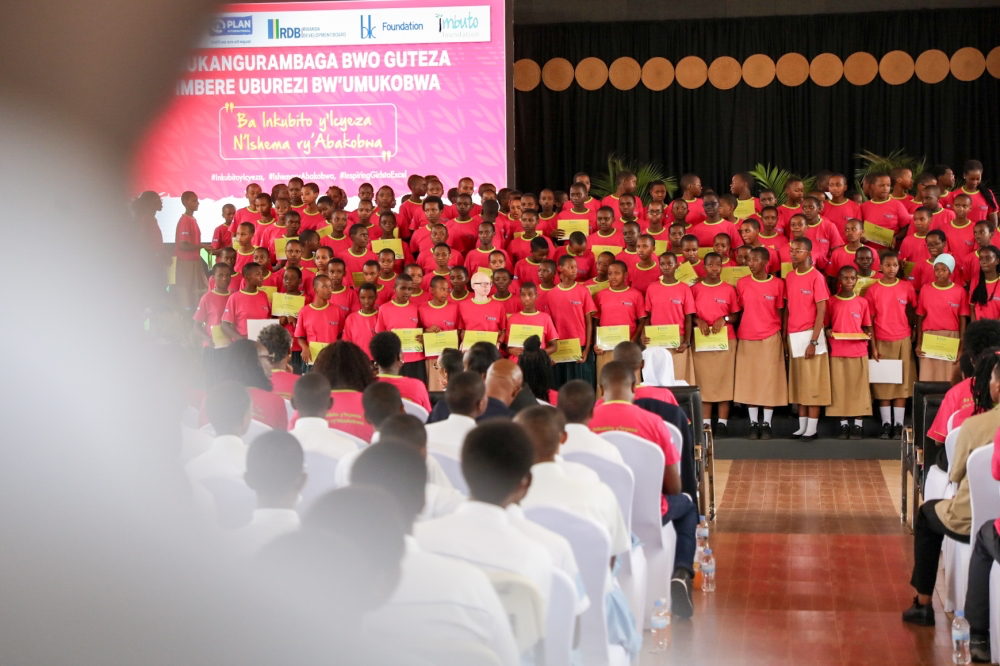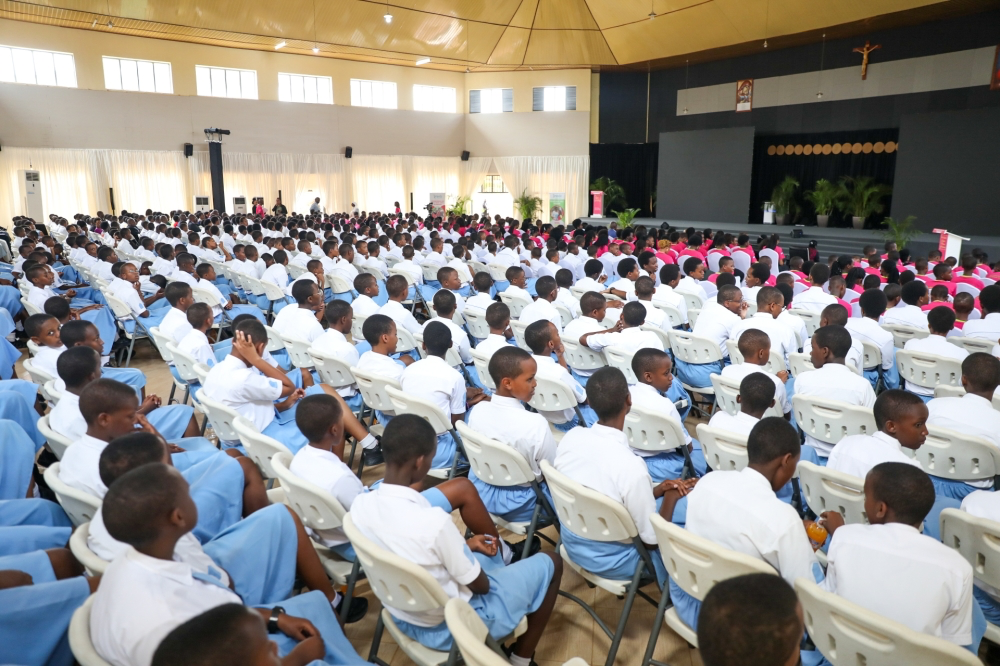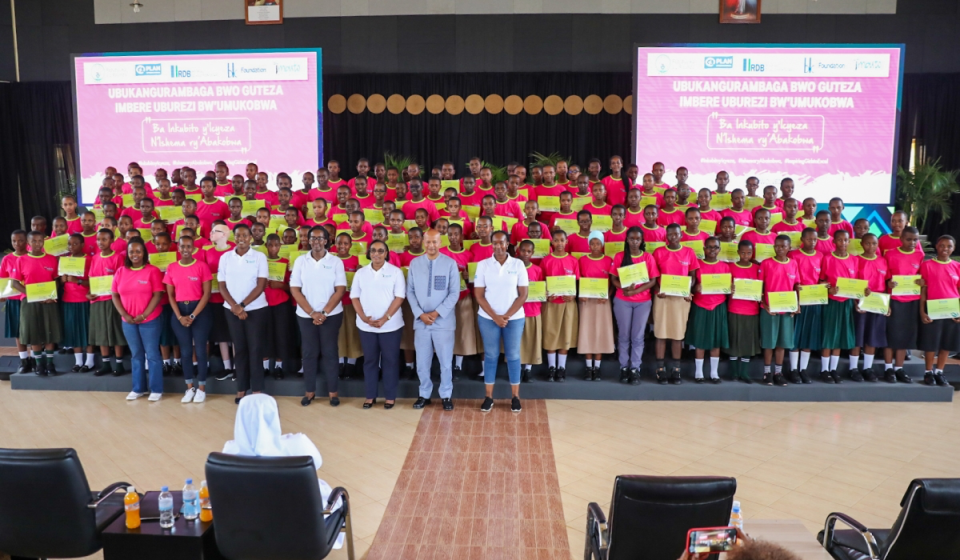First Lady Jeannette Kagame, on March 22, awarded 216 best-performing girls from primary, ordinary, and advanced levels, tasking them to become pillars of the country’s development.
The awarding ceremony held at Maranyundo Girls School marked the launch of Imbuto Foundation’s Promotion of Girls Education Campaign themed “Ba Inkubito z’Icyeza n’Ishema ry’abakobwa.”
Initiated in 2005 by the First Lady, the ceremony aims at recognising girls’ high academic performance, inspiring healthy competition and school retention, and motivating other girls to excel.
This year’s campaign combines and rewards 951 girls from two cohorts of 2021-2022 and 2022-2023, across the country, whereby the remaining 735 best-performing girls will be rewarded at their schools.
In her remarks, the First lady said while boys also need special support, history, and research indicate that there is still more to be done to empower girls, hence the importance of this programme that serves as a platform to remind the society at large about the need to remove barriers to gender equality.
“However, we should not leave behind our young boys so that we don’t create the gender inequality among our children that we have been fighting.”
As Rwanda marks 30 years of liberation, she noted that it is an opportunity to celebrate different achievements made so far, including the empowerment of women and girls to allow their participation in the country’s development.
She said it was not easy to change people’s mind-set since most stereotypes were embraced as part of the culture, which, yet again demands respect and support for women who birth and nurture the country.
While there has been commendable progress over the last 10 years that saw a 12 per cent increase of girls’ enrolment at the primary level and 45 per cent at the secondary level, the First Lady highlighted persisting challenges that face girls, such as teen pregnancy and dropping out of school due to household chores.
She thanked partners that have been present throughout the journey of promoting girls’ education, which began in 2005.
“We have many young girls and women that passed through the programme Inkubito y’Icyeza. They serve as an example of possibilities and realisation of dreams.”
She urged the students to be forward-thinkers in terms of making more achievements as they plan their future and not be bystanders in the face of challenges that the society is grappling with, hinting at the national campaign of ‘Tunywe Less’.
The First Lady also urged the students to remain focused on their studies, with emphasis on embracing STEM (Science, Technology, Engineering, and Mathematics) courses as it will help them to be competitive in labour market and become innovators as well.
Raissa Impano, representative of the Best Performing Girls, and student at the Educational Institute for Visually Impaired Children in Kibeho, thanked the country’s leadership for championing girls’ education and promoting inclusion for people living with disabilities.
“We also commit to put our abilities to good use and become your pride.”
Valentine Uwamariya, Minister of Gender and Family Promotion, said more effort should be geared towards addressing challenges that hinder the girl child’s advancement such as combining school work with household work, family conflicts, and sexual abuse that turn them into parents, yet, still needing parental care themselves.
“We are here to show you support and the trust we have in your continued academic excellence. A child, whether a boy or a girl, who performs well becomes the pride of parents and a pillar to the country’s development.”
To date, 6,681 young girls have been awarded for their high academic performance. – The New Times




